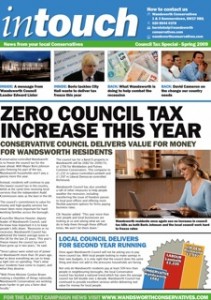One of the books in me is The Aborted Politician, a look at those people who created an embryonic political career and contested a parliamentary seat and then – for whatever reason – did not pursue politics any further. Luckily for the book-buying public no publisher would touch me. My Comprehensive school education barely got beyond ‘doing words’ and ‘describing words’ and while I use semi-colons to appear clever; deep down I know I’m not using them properly.
Unfortunately the internet gives a forum to anyone dull enough, angry enough or self-obsessed enough to set up a blog.
So, prompted by ConservativeHome’s look at the 27 ‘A list’ candidates (from the original 100) who are no longer looking for a seat I started thinking about the issues around this again. The article is interesting partly because a single internet page has probably ruined my book idea. And interesting because I’m guessing this is about as close to an exit interview any of these people have got.
My interest in this is that I, too, am one of those aborted politicians. When younger I was determined to become an MP and in 2001 found myself fighting my unwinnable, the apprenticeship seat, which I enjoyed enormously. Obviously I lost (only 11,000 or so votes in it), but did a good enough job to get myself on the approved list of candidates for the 2005 election.
And that was it. I never applied for another seat.
In the run up to the 2005 election I gave myself all sorts of excuses for not applying for seats. No suitable vacancies… I wanted to get more life experience… My time was more valuably spent working in Battersea… But deep down I think I knew that I just didn’t really want to be an MP anymore, even if I could not pin-point actually taking that decision.
Now I don’t think I’m typical. And don’t think I’m a great loss to Parliament. But looking through the list on ConservativeHome, and knowing others who were not even allowed on the list in the first place, I think Parliament and this country has missed out on some very able potential MPs. And if we want to improve the government of this country we need to work out why those talented people get so close, invest so much of their time, energy and money, and then walk away.
Maybe I fall into the self-obsessed category (I’m not angry about it, and hope I’m not dull) but I feel an examination of those abortive political careers would cast an interesting light on the political system. While the Conservative and Labour Parties have fairly professional looking assessment procedures, the whole process is slightly odd.
For my assessment I had to go to Melton Mowbray, home of the pork pie and a rather nice conference hotel venue, where I sat psychometric tests, took part in role plays, did desk-top exercises and was interviewed but – very curiously – encouraged not to talk about politics. The reasoning was that they were looking for people who could bring real life experience to the party. But I couldn’t, and still can’t, help but think it’s a bit odd. Would you want a doctor who has no curiosity about the human body? A musician with no passion for music?
The problem is that parties only have a veneer of professionalism and, while it’s getting better, we still have amateurs running the country. There isn’t an HR department identifying training needs, nor a proper disciplinary process to deal with problem members (you can’t pretend elections serve this purpose when the majority of seats never change hands). The fact is that initiatives like the Conservative ‘A list’ are window dressing, the aims are noble, but they do not address the underlying issues that need tackling to improve female or ethnic minority representation in Parliament. My suspicion is that despite all the initiatives on both sides of the political divide the basic profile of the MP hasn’t really changed all that much in the last 20 or 30 years.
Of course, I can imagine what the Daily Mail’s response would be if MPs were to vote themselves a decent training allowance, or Parliament were to start giving political parties money to develop talented grassroots activists who may have something to offer on a wider stage. So, instead, we end up with the legislature and executive we deserve, just because that’s the way politics is done in this country.
 Obviously I’m glad that he also welcomes the team. But I was drawn to the comment that “Labour Councillors and Sadiq have lobbied Wandsworth Council to introduce” the new team.
Obviously I’m glad that he also welcomes the team. But I was drawn to the comment that “Labour Councillors and Sadiq have lobbied Wandsworth Council to introduce” the new team. We are currently in the process of distributing the latest issue of ‘In Touch’, our consitutency wide paper.
We are currently in the process of distributing the latest issue of ‘In Touch’, our consitutency wide paper.